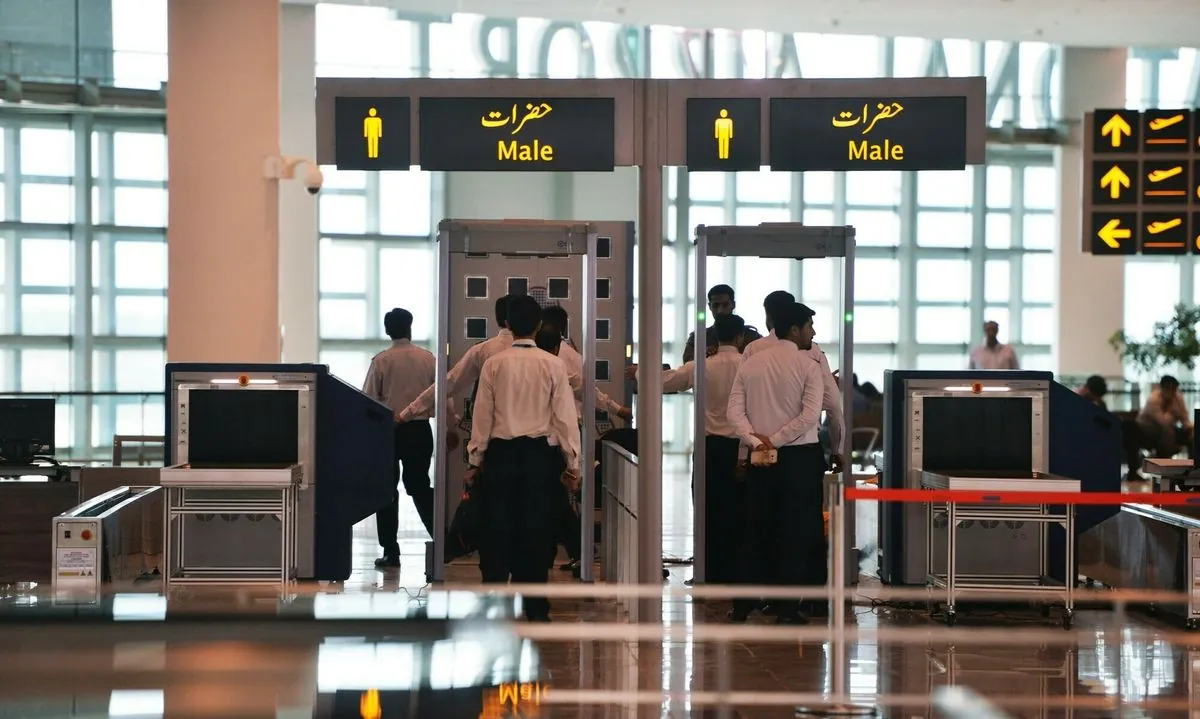On the evening of October 6, 2024, a violent incident unfolded near Jinnah International Airport in Karachi, Pakistan's largest city. A convoy transporting Chinese nationals was targeted in a bombing attack, resulting in the tragic loss of two Chinese lives and leaving eight individuals wounded.
The Baloch Liberation Army (BLA), a separatist group founded in 2000, claimed responsibility for the assault. This organization, designated as a terrorist entity by Pakistan and several other nations, has a history of targeting Chinese interests in the country.
The attack occurred just one week before Pakistan is set to host a summit of the Shanghai Cooperation Organization (SCO), a security alliance established by China and Russia in 2001. Pakistan joined the SCO as a full member in 2017, highlighting its growing ties with regional powers.
Pakistani authorities initially provided conflicting information about the incident, but later confirmed it was indeed a bomb attack. The explosion targeted a convoy of Chinese engineers and investors as they departed from the airport, which handles over 20 million passengers annually.
"One of our suicide bombers targeted the convoy of Chinese engineers and investors as they left the airport."
The Chinese Embassy in Islamabad reported that the victims were employees of the Port Qasim Electric Power Company, a joint China-Pakistan venture operating a 1,320 MW coal-fired power plant near Karachi. This project is part of the broader China-Pakistan Economic Corridor (CPEC), a collection of infrastructure initiatives valued at over $62 billion.
Prime Minister Shehbaz Sharif strongly condemned the attack, describing the perpetrators as "enemies of Pakistan." He pledged to bring those responsible to justice and reaffirmed Pakistan's commitment to safeguarding Chinese nationals working in the country.
This incident is the latest in a series of attacks targeting Chinese interests in Pakistan. In March 2023, a suicide bombing claimed the lives of five Chinese engineers working on the Dasu Dam project. The following month, a suicide bomber targeted Japanese workers in Karachi, though they escaped unharmed.
The ongoing violence underscores the security challenges faced by foreign workers in Pakistan, particularly those involved in the Belt and Road Initiative (BRI). Launched by China in 2013, the BRI aims to enhance connectivity between Asia, Africa, and Europe through extensive infrastructure projects.
The Balochistan province, where the BLA primarily operates, is a region of strategic importance and rich natural resources. Covering nearly 44% of Pakistan's land area, it possesses significant reserves of natural gas, oil, coal, copper, and gold. However, the province also faces socio-economic challenges, with the lowest literacy rate in the country at around 40%.
The Baloch people, with a distinct culture and language dating back over 2,000 years, have long sought greater autonomy and control over their resources. The first Baloch revolt against Pakistan occurred in 1948, shortly after the country's independence.
As Pakistan's counterterrorism officials investigate the attack, the incident serves as a stark reminder of the complex security landscape in the region. The National Counter Terrorism Authority (NACTA), established in 2009, will likely play a crucial role in coordinating the response to this latest act of violence.
The attack also highlights the delicate balance Pakistan must maintain between its strategic partnership with China and addressing the grievances of separatist groups. With bilateral trade exceeding $20 billion annually, China remains Pakistan's largest trading partner, and their friendship is often described in superlative terms.
As the SCO summit approaches, Pakistan faces the challenge of ensuring the safety of international delegates while addressing the underlying causes of unrest in Balochistan. The coming days will be critical in determining how this latest incident impacts the China-Pakistan relationship and the future of development projects in the region.
